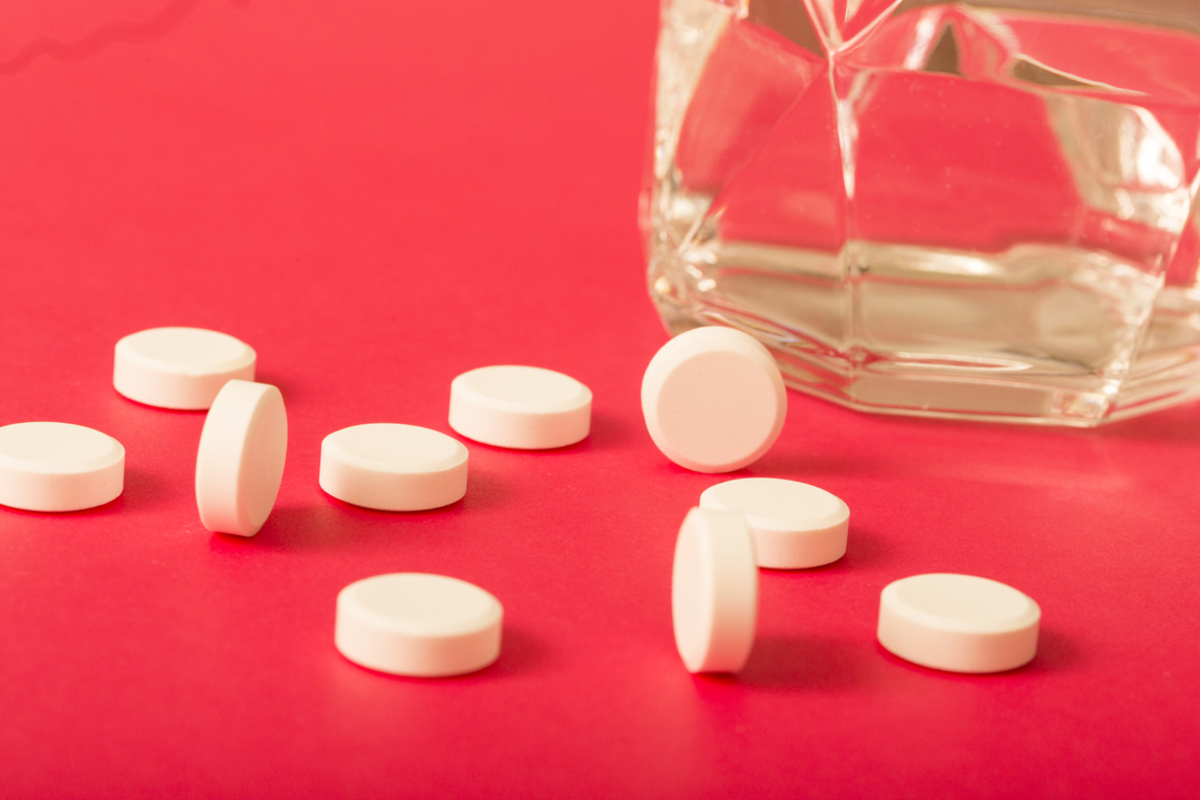When you are on the verge of having a heart attack, the first thing to do is call the emergency medical services and have them send an ambulance your way. The next best thing, as many online articles will tell you, is to take an aspirin. Is this first aid method actually effective?

Understanding heart attacks
When the paramedics arrive, they can transport you to the hospital immediately, but also administer medication, monitor your blood pressure, examine your heart rhythm, and do everything they can to get you safely to the hospital, where specialized doctors can asses and treat your condition.
The most common reason why people have heart attacks is because of coronary artery disease. This condition takes years to develop, and it mostly starts with eating foods that are too fat and too rich in cholesterol. In time, this cholesterol attaches to the interior lining of the artery walls, where it forms deposits that are called plaques.
These plaques gradually grow, making the coronary artery walls narrow, and stiff. Consequently, blood clots are formed, and these clots can fully block a blood vessel. As this occurs, the part of your heart that is connected to the blocked vessel doesn’t receive the blood it needs to survive. This means that the muscle tissue dies, and your heart will suffer permanent damage because of it.
The in-depth explanation is the following: there are tiny blood cells which are called platelets, and they are the ones that form blood clots. Generally speaking, blood clots can be a good thing when they occur on the surface of the skin. If you’ve ever cut yourself, the site gradually healed because of hardened blood that covered the cut, allowing the tissue underneath to heal.
However, when the damage occurs inside of the arteries, platelets will do what they know best: group to form a blood clot and try to heal the damage done. While their intentions are good, they can also be fatal for people who have coronary artery disease.
How aspirin works
Aspirin is one of the most popular medications in the world, and the first-ever discovered the non-steroidal anti-inflammatory drug. It is used in plenty of different conditions, including treating headaches, menstruation-induced pain, colds and flu, arthritis, pericarditis, and others.
What aspirin does is to prevent platelets from grouping together, ergo it minimizes the odds of blood blot formation. Just a small aspirin dose can be enough to prevent platelets from grouping, but that doesn’t make aspirin a permanent solution.
A study conducted in Texas aimed at studying how aspiring intake is more efficient asked 12 volunteers to take a 325-mg dose of aspirin in different ways:
- Ingesting a tablet with four ounces of water.
- Drinking four ounces of water with Alka-Seltzer.
- Chewing an aspirin tablet for half a minute, and then swallowing it.
The study ask each volunteer should try taking the aspiring in every one of the three different methods, on an empty stomach. The research team then monitored the active ingredient inside aspirin tablets (salicylate), as well as thromboxane B2 levels (a marker that drops once platelets are inhibited).
Their results showcased the fact that chewing aspirin was the most efficient method out of all three. When chewing aspirin, the thromboxane B2 concentration dropped by 50 percent in a matter of five minutes. When directly ingesting a table with water, the average time for thromboxane B2 drop was 12 minutes, while taking Alka-Seltzer achieved the same effect in eight minutes.
The peak of platelet inhibition was reached by the chewed tablet in a timeframe of 14 minutes, going up to 16 minutes for the Alka-Seltzer, and all the way up to 26 minutes for those who swallowed a tablet with water.
Aspirin as heart attack first aid
Generally speaking, aspirin is a good drug to take if you have coronary artery disease. A dose of 81 mg per day should suffice. However, people that are on the verge of having a heart attack will need a higher dose of chewed aspirin (325 mg.), which could make a world’s difference while waiting for the ambulance.
Conclusion
One of the most popular drugs in the world, aspirin is used as a pain reliever, but it’s also one of the best blood thinners in the world. Aspirin works by preventing platelets from grouping. These are the tiny blood cells that form blood clots. As studies have pointed out, after having called an ambulance as a consequence of suspecting a heart attack, the second-best first aid method is to chew 325 mg of aspirin.
- Photo courtesy of SteadyHealth


Your thoughts on this